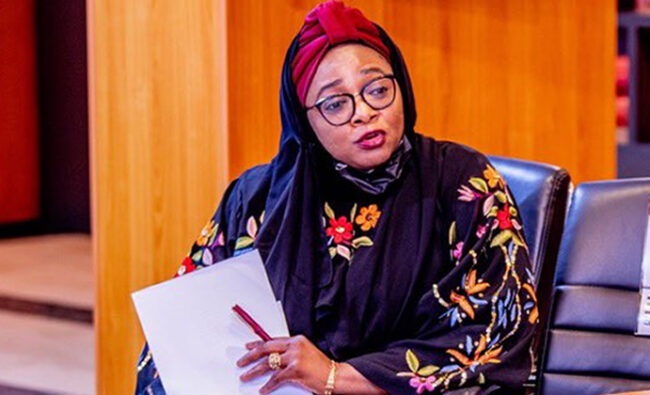The Nigerian Government has called on Nigerian universities to set up Sexual Assault Referral Centres (SARCs) to address cases of sexual harassment and ensure swift intervention within academic communities.
Imaan Suleiman-Ibrahim, Minister of Women Affairs, made this appeal on Monday at the National Summit on Addressing Sexual Harassment in Tertiary Institutions, held in Abuja.
The event was organised by Alliances for Africa (AfA) in partnership with the Committee of Gender Directors in Nigerian Universities (CGDNU).
Describing sexual harassment as a “global menace” and a “widespread violation of human rights,” Suleiman-Ibrahim highlighted its devastating effects, which go beyond physical harm to inflict emotional, psychological, and socio-economic scars on survivors.
“Sexual harassment within educational institutions is one of the most pervasive violations of human rights, particularly against women and girls, whose effects transcend physical harm, leaving survivors with emotional, psychological, and socio-economic scars,” she said.
The minister reaffirmed the administration of President Bola Tinubu’s dedication to eradicating gender-based violence, including sexual harassment.

She cited initiatives such as the Violence Against Persons Prohibition (VAPP) Act 2015 and the Sexual Harassment Prohibition Bill, passed by the 9th Senate in 2020, as part of the government’s ongoing efforts.
“I am unwavering in my commitment to champion gender equality principles and addressing gender-based violence, including sexual harassment eradication, in all its forms under the Renewed Hope Agenda,” Suleiman-Ibrahim said.
She added that her ministry would collaborate with the Federal Ministry of Education, universities, and other relevant agencies to launch nationwide awareness campaigns, challenge harmful gender stereotypes, and promote accountability on campuses.
While acknowledging that there are currently only 47 SARCs in 22 states and the Federal Capital Territory, the minister called for an expansion of these centres in universities to provide timely support for survivors.
Universities’ Role in Tackling Sexual Harassment
Prof. Ufuoma Awhefeada, Coordinator of the CGDNU, stressed the need for creating safer and more inclusive academic spaces. She noted that sexual harassment is a persistent issue in Nigerian tertiary institutions, affecting students, staff, and the overall functionality of universities.
Awhefeada emphasised the role of gender directors in implementing university policies on gender and sexual harassment. She also called for partnerships with government agencies, NGOs, and community leaders to achieve their goals.
“Part of our core mandate as gender directors, is pursuing the implementation of the gender policy as well as the sexual harassment policy of our respective universities. In undertaking this task, we are expected to work closely with the heads of other units, staff and students within the university,” she said.
Hon. Akin Rotimi Jr., a member of the House of Representatives, expressed the 10th Assembly’s commitment to addressing sexual harassment in higher institutions. He conveyed the support of Speaker Abbas Tajudeen and emphasised the legislature’s resolve to tackle pressing national issues.


